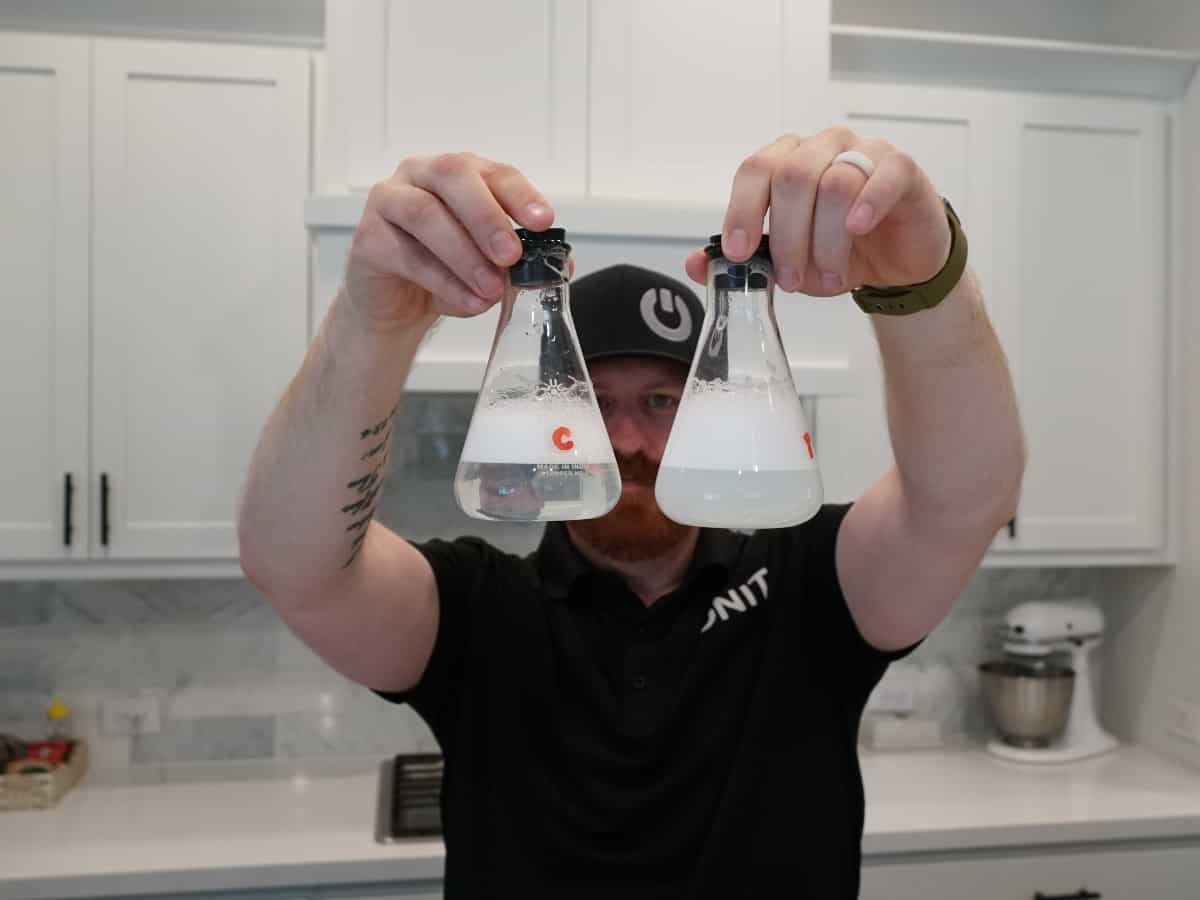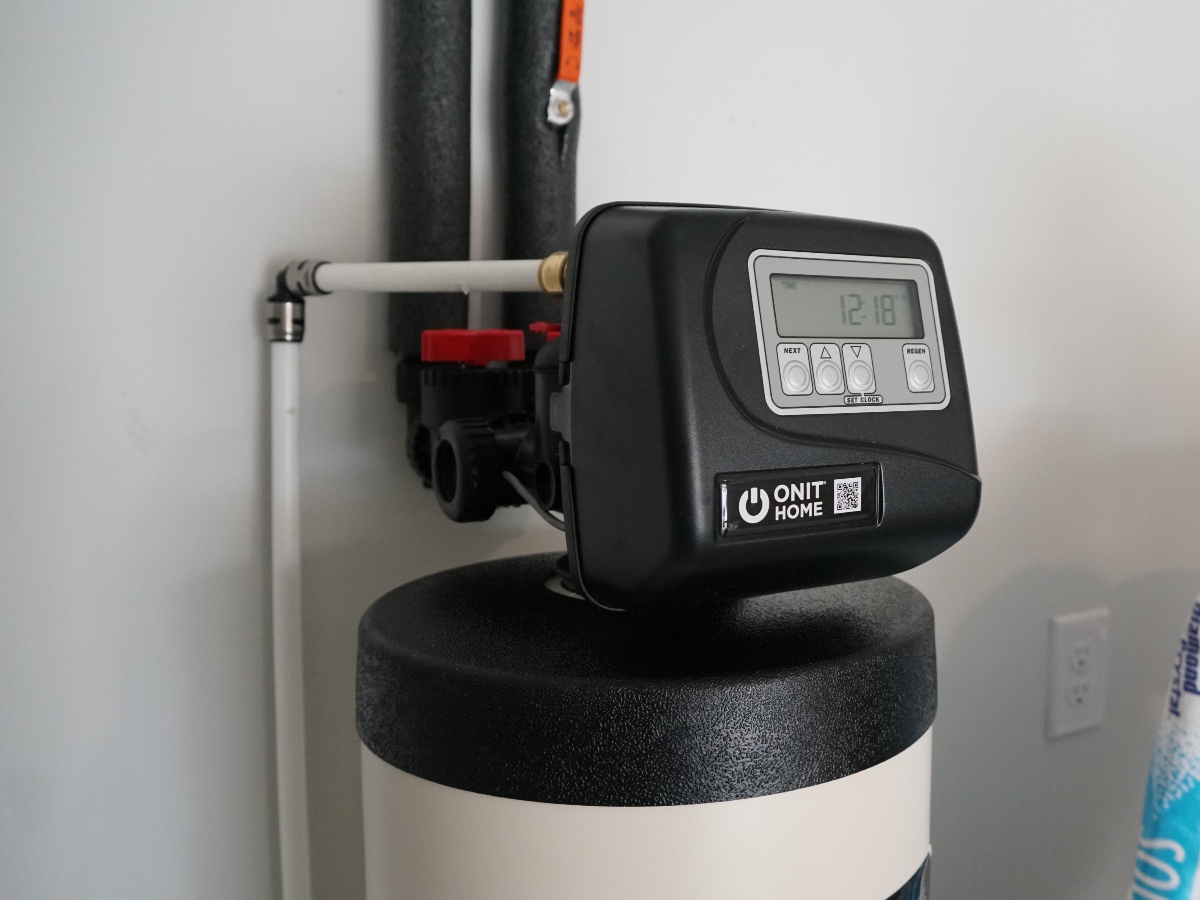Sulfur in water is not an uncommon occurrence. It is estimated that most private wells in the United States have some sulfur level in their water. While the presence of sulfur in water is not necessarily harmful, it can lead to some problems. Sulfur water can give your water an unpleasant taste and a rotten egg smell. Water with sulfur can also discolor clothing, corrode pipes, and damage your appliances.
If you are concerned about sulfur in your water, this article is for you. We look closely at the effects of sulfur in the water and ways to remove it. Keep reading to learn more.
Understanding Sulfur in Water
Sulfur in water is often thought of as a problem that only affects those who use groundwater. However, this is not the case. Sulfur can be found in both surface water and groundwater. In addition, it is a naturally occurring element found in rocks and soil. Since municipal water is treated with chlorine, it becomes rare to find sulfur in their water. Furthermore, the hydrogen sulfide in surface water can escape into the atmosphere, unlike in well water or other still water sources, such as swamps.
Sulfur can be annoying and even dangerous if not dealt with correctly. But what is sulfur, and where does it come from?
Sulfur is a highly reactive element that is found in nature in many different forms. It is a component of various minerals, including gypsum and anhydrite. Sulfur can also be found in hot springs, crude oil, and natural gas. When these natural sources of sulfur are exposed to air and water, the sulfur is dissolved, and they can release hydrogen sulfide gas.
There are two forms of sulfur in drinking water; sulfate and hydrogen sulfide. These two forms occur naturally, and none pose an adverse health risk.

What Causes Sulfur in Water?
The presence of high hydrogen sulfide gas causes sulfur in the water. This gas is produced naturally when organic matter decomposes and leaches to soil and rocks. The gas then dissolves in the water, causing the water to become sulfuric. Hydrogen Sulfide gas is often present in wells drilled near coal, peat, or oil feed. Unfortunately, it gives your water a foul smell and taste. In addition, sulfur-reducing bacteria are the main culprits of high quantities of hydrogen gas in your water. This bacteria feeds on a small amount of a sulfate mineral (a combination of sulfur and oxygen), leading to the sulfur odor in your water. Sulfur-reducing bacteria thrive in oxygen-poor environments such as wells, water heaters, and plumbing systems.
Should You Be Worried When Sulfur Is in Your Water?
Sulfur water should not be a significant health concern unless it has high concentration levels. However, the smell and odor can be nauseating. Understanding that water shouldn’t have any taste, color, or odor is crucial. If you detect any of these, test your water immediately.
Sulfate is considered a nonsense chemical by the U.S Environmental Protection Agency (EPA) due to its cosmetic effect on water quality. The EPA believes sulfate falls under secondary standards because it is not threatening to your health. Sulfate can cause different water problems in your water, including:
- Aesthetics: Refers to odor and taste
- Cosmetics: Does not damage the body, but it’s unpalatable.
- Technical: Can damage water equipment or reduce the effectiveness of treatment for other contaminants.
The set secondary maximum sulfate contaminant level (SMCL) is 250 mg/L. This level is set for guidance only and is not enforceable by federal law.
On the other hand, the EPA does not regulate hydrogen sulfide, so there is no set limit. However, odor and taste indicate that it’s present, and you will need to conduct a water test to determine their level. There are no known health effects of low hydrogen sulfide. However, it is essential to note that high hydrogen sulfide is toxic and flammable and can also affect your appliances.

Can You Drink Water With Sulfur?
If the sulfur levels in your water are low, then you can drink the water without worrying about your health. However, it’s good to note that there are no health benefits of drinking water that has sulfur. Moreover, regardless of your thirst, the taste and smell can be a real turnoff.
So are there any health effects if you take water with a high sulfur level? Excess sulfate levels can have a laxative effect on your body, leading to diarrhea and later dehydration. Infants may have severe issues with this, but as adults become acclimated to it, they can adjust and get through the symptoms. Some studies suggest sulfur water is good for the skin and hair, although much research needs to be done to support this claim.
High levels of hydrogen sulfide can lead to:
- Unpleasant smell: A foul odor can be the first sign that alerts you there’s sulfur in your water.
- Corrosion to the plumbing system: The corrosiveness of hydrogen sulfide on metals such as copper, brass, iron, and steel can lead to damaged pipelines and appliances.
- Discoloration of your clothes, utensils, and sink fixtures: Yellow stains on your clothing or surfaces could appear if your water contains a lot of hydrogen sulfate.
How to Identify Sulfur in Water
When your water has a bitter or salt-like taste and a rotten egg smell, it could mean sulfur is in your water. There can be different sources of the problem
- Plumbing system
- Well
- Water heater
- Water softener
You can detect the source of the problem by knowing whether the smell comes from cold water, hot water, or both.
- Cold water: When you run cold water for some time and realize that the smell is less noticeable, the problem could be due to sulfur-reducing bacteria. Poor oxygen environment, still water, and corrosion encourage bacteria growth in the well leading. As a result, your water can smell bad.
- Hot water: If the smell comes from only hot water, the problem could be in your water heater. The anode rod in water heaters is corrosive since it contains magnesium which is highly susceptible to corrosion. It helps prevent your water heater from corrosive elements. In addition, leaving hot water in the water heater for a long time can lead to the growth of bacteria that can lead to odor in the water.
- Cold and hot water: When you find the odor coming from cold and hot water, hydrogen sulfide is in your well. When this gas is trapped in your well, it might lead to slime buildup, which can increase bacteria growth.
Your water softener can also cause your water to smell like rotten eggs if it becomes contaminated with sulfur.

Can You Test Sulfur in Water?
Of course, you can test your water for sulfur. This is what you should do immediately if you suspect your water is contaminated. However, the best way is to test your water on-site for more accurate readings. This is because hydrogen gas escapes into the atmosphere very quickly.
It’s crucial to test your water for sulfur to rule out the possibility of the odor coming from another pollution, like E. coli. Furthermore, it’s a good thing to let professionals handle the testing since they have more experience and will be able to point out the problem quickly. Most companies provide free water tests and interpret the results for you, giving you a great understanding of your water quality.
The EPA recommends having your well water tested yearly to verify its quality and eliminate any impurities. For water in public water systems, the operators are responsible for sulfate levels in the water. As a result, they should provide annual consumer confidence reports (CCRs) that include the sulfate or hydrogen sulfide information.
How to Remove Sulfur From Water
Although it depends on the type of sulfur present and the levels, the good news is that there are numerous ways to remove sulfur from water. However, it’s important to note that removing sulfate from water is difficult, necessitating the use of chlorine to kill the bacteria. If the problem is from your water heater, then you can do the following.
Problem From Water Heater
- Disinfect your water tank: You can use chlorine to treat your water and flush the system. Although this method is effective, you may find the bacteria recurring.
- Increase water heater temperature: You can increase the temperature to 160°F (71 °C) to help kill the bacteria. This method is risky, making it necessary to contact the manufacturer for recommendations.
- Replace the anode rod: If you use a magnesium anode rod, replace it with one that does not corrode quickly, such as aluminum.
Problem From Water Softener, Plumbing Lines, or Well
If you discover that the problem is originating from the water softener, plumbing lines, or well:
- Use chlorine: The chlorination method is among the most effective disinfectants to remove sulfur from your well and the plumbing systems.
- Aeration: You can install an aeration system to increase the air in your well before the water enters your home to reduce hydrogen sulfide.
- Hydrogen peroxide: Helps remove sulfur in the water, thereby eliminating the bitter taste, color, corrosion, and odor. In addition, you can use this method to eliminate magnesium and iron.
- Activated carbon filter: This filter is an effective way that uses the adsorption method to filter sulfur. Activated carbon filters are also excellent for removing contaminants such as chlorine and mercury.
- Oxidizing filter: An oxidizing filter (effective for sulfur levels of up to 6 mg/L) helps convert the hydrogen sulfide into small particles of sulfur which are then filtered.
- Whole home filtration system: Installing a whole home filtration system is the best way to beat the rotten egg smell and bitter taste in your water. This means it’s one of the most effective methods to kill sulfur bacteria and remove hydrogen sulfide. In addition, it also helps reduce other water contaminants such as heavy metals, microorganisms, sediment, and rust. Furthermore, with a whole home water filtration system, you can enjoy clean and good-quality water throughout your home.

Enjoy Clean Water With ONIT Home Whole Home Water Filtration System
Sulfur in water is common and should not cause an alarm unless its levels are high. Testing your water when you notice a change in taste, color, and odor is the only way to be sure that you have sulfur in your water. ONIT Home can help test your water for sulfate and hydrogen sulfide, among other contaminants. We can also help diagnose the primary source of sulfur in your water and develop the right system for your home. Our whole home filtration system is a sure bet for removing sulfur and other contaminants. In addition, this system guarantees clean water to promote good health for your family, the plumbing system, and appliances.
Visit us online or call us at 1-833-433-0331 for more information. Need clean water? We’re ONIT.



